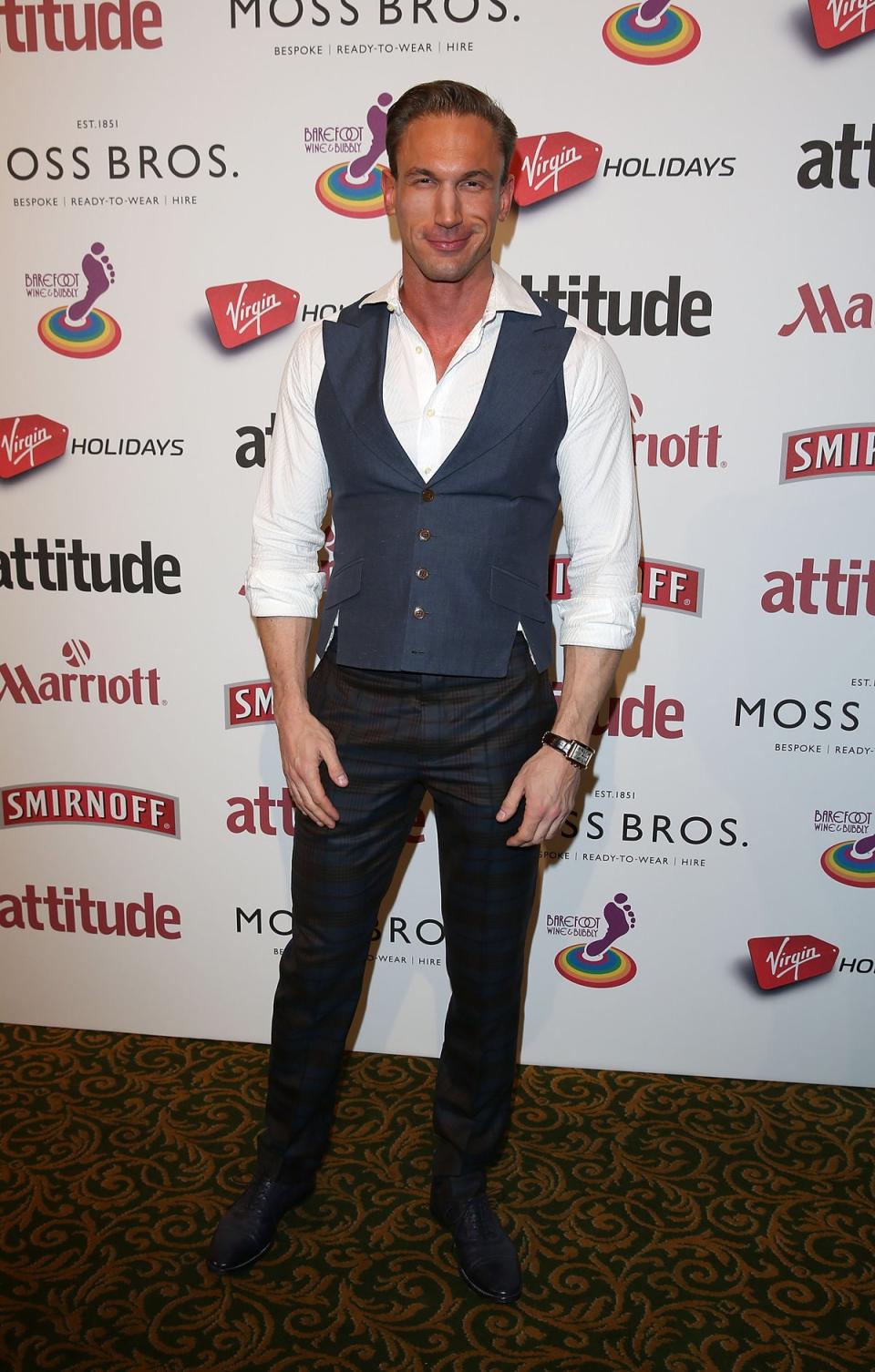Oh boy! Abs are back in fashion — but at what cost?

Last month, Vanity Fair dropped a photoshoot that brought together 12 of the hottest stars in showbiz as part of its annual “Hollywood Issue”. A dozen A-listers, strewn across a dive bar, dressed to the nines with wet-look hair and glistening skin, their instantly recognisable faces giving pure blue steel to the camera.
The spread played host to practically every viral icon of the past year: Florence Pugh, Jeremy Allen White, Keke Palmer, Austin Butler, you name them. But all anyone could talk about was one thing. Or six things, really: Aaron Taylor-Johnson’s abs.
Vanity Fair knew all too well what they were doing with Taylor-Johnson’s individual portrait, which showed him with his arms outstretched touching the walls of a hallway, his unbuttoned leather coat revealing a positively ludicrous six-pack. It was like someone had yassified a packet of hot-cross buns.
ATJ’s abs then broke the internet in a way that is usually exclusively reserved for Kardashian rear ends — people were praising, resharing and thirst tweeting with abandon. Even news sites with typically straight male audiences were going wild for it — Barstool Sports ran an article with the headline: “Aaron Taylor Johnson Has Too Many Abs To Count In His Latest Vanity Fair Photoshoot And I Need A Cold Shower.” The off-the-charts reaction prompted two questions: firstly, are abs back? And next, what does that mean for men?
There’s a lot of evidence pointing towards a rock-hard ‘yes’ on the abs-being-back front. Firstly, Taylor-Johnson wasn’t alone in his ab-baring for the Vanity Fair shoot, he was kept company by The Crown and Lady Chatterley’s Lover star Emma Corrin, who also displayed an impressively toned stomach underneath their black suit jacket, which was paired with a simple black bikini top.

Last month also saw the return of the renowned ab-spectacle that is Magic Mike, with ab ambassador for the United States of Abmerica Channing Tatum baring all for his third and final outing as lovable stripper Mike Lane. Then, the following week, Orlando Bloom bared his chest (and then some) for Flaunt magazine, arguably the most naked we’ve seen him since those history-making paddleboarding pics. And shortly after, UFC fans were floored by the appearance of Jake Gyllenhaal, who weighed in and took to the ring at an event, showing off his extremely stacked new physique for an upcoming reboot of the movie Roadhouse.
To make matters even worse, there’s now a shortcut to getting abs — think Ozempic, but for getting ripped. It’s a form of liposuction called “ab etching” which has flown under the radar for years and involves sucking out fat to create grooves that reveal the underlying ab muscles beneath. Surgeons are saying that all sorts of actors, singers and models have undergone the process - Drake has already been accused of it - and it’s even earned the “best kept secret in Hollywood” title, which usually means it’s about the become the worst kept secret in... everywhere.
it’s even earned the “best kept secret in Hollywood” tagline, which usually implies it’s about the become the worst kept secret in... everywhere.)
So yes, they’re back. And Taylor-Johnson’s own trainer, David Kingsbury, has taken note. “I do think the popularity of different looks comes in waves and it follows the industry. So when actors like Hugh Jackman or Aaron Taylor-Johnson turn up looking like that, it can drive that trend.” Kingsbury is responsible for both Jackman and Taylor-Johnson’s crazy six packs; he trained Jackman for his role as Wolverine and is currently training Taylor-Johnson for “a couple of projects” he can’t currently disclose.
Kingsbury can’t say exactly what he does to get ATJ’s abs the way they are, but explains: “The thing with ab definition is most people think that they need to train abs a lot in order to achieve it,” David says. “But really, it’s a case of having low levels of body fat.” He thinks abs have always been the “gold standard” for men because they’re easier to achieve than trying to look bulked up like The Rock, for example.
But this body type being presented as a “gold standard” isn’t as healthy and aspirational as it may seem and muscular bodies can invoke just as many mental-health issues as non-idolised body types. The quest to obtain bulging muscles even has its own specific mental-health diagnosis: muscle dysmorphia. Often incorrectly referred to as “Bigorexia”, muscle dysmorphia is where someone becomes obsessively concerned with their muscularity and leanness, perceiving themselves as much smaller and weaker than they really are.

This is exactly what happened to Dr Christian Jessen, who you may remember from hit Channel 4 show Embarrassing Bodies, when he was quietly suffering from muscle dysmorphia in the 2010s. “I was the size of a truck at one point,” Dr Christian says. “I was enormous, but I didn’t see it — in my head, I was still just this skinny, feeble schoolboy who was never quite happy with how he looked.”
Dr Christian became hyper-focused on achieving this “ideal” body type, to the point where he would become irritable if he couldn’t hit the gym every single day. “It’s like a drug addict if they can’t get their fix,” he says. “It’s embarrassing and it sounds horribly vain, but I would feel my arms because I thought they’d be getting thinner just in the space of one afternoon because I couldn’t make it to the gym.”
Though it may sound similar, muscle dysmorphia is not an eating disorder. “Muscle dysmorphia is an obsessive-compulsive disorder that actually falls under the umbrella of body dysmorphia,” says Kyle Ganson, an assistant professor at the University of Toronto who specialises in studying body dysmorphia. And because of muscle dysmorphia’s close connection to the ideal male body type, it predominantly affects men, and it is rarely treated.
“A lot of people [with muscle dysmorphia] wouldn’t seek diagnostic help or go to a medical professional,” Ganson explains, “because it’s often serving them in a positive way — they’re getting good feedback from partners or other people at the gym, so they don’t see it as a problem.”
A crippling mental-health condition that society rewards makes for a catch-22 situation, and it’s something that Dr Christian witnessed firsthand. “Everyone told me I looked good,” he recalls, “and I got work because I looked good. Everything is geared towards praising you and encouraging that [body type] — so how on earth are you ever going to get better?”

It’s why the fashionable return of abs is a risky business. On the one hand, it’s not a dysfunctional trait to want to be fit or go to the gym, and celebrities’ looks will likely always skew towards being aspirational. But, when one in three men never try to get help with their eating disorders (according to the latest research from eating-disorder awareness charity Beat), it’s dangerously ironic how we often uphold male body ideals with zero criticism, yet strive (the key word here being ‘strive’) for a body-positive utopia for women. And unfortunately, celebrities with superhero bodies do have an impact on men in real-time.
“I’m sure pictures of celebrities like that would have bothered me [during my muscle dysmorphia],” Dr Christian says, “because we spend all day comparing our lives to other people’s lives. These pictures can be triggering and you learn to avoid these sorts of images, or fitness forums, or Instagram accounts. I’m not even on Instagram because I knew it would be problematic for me.”
Ultimately, seeing one picture of some sweat-drenched abs isn’t going to cause a young man to develop muscle dysmorphia, but the decades during which we’ve seen these abs presented without comment, as a perfect, achievable body, have taken their toll. Men have the full right to look and feel good — and that doesn’t mean everyone has to look the same way.

 Yahoo Sport
Yahoo Sport 





































